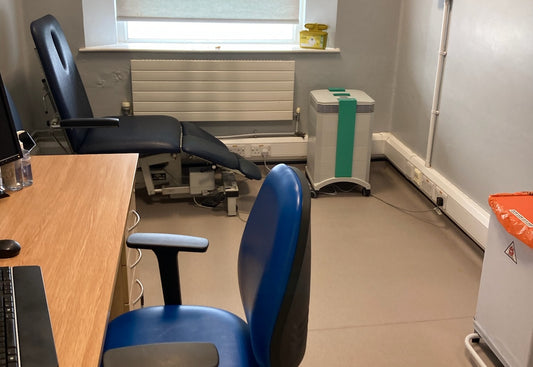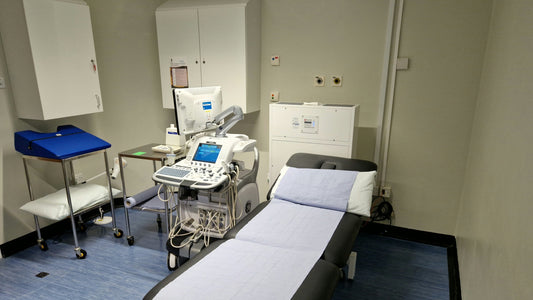Eczema is one of the most common occupational skin problems, with 80% of newly diagnosed work-related skin disease being eczema caused by irritant exposure. That is why the National Eczema Society is using National Eczema Week to turn the spotlight on occupational eczema.
Six million people in the UK suffer from eczema, which is not actually a disease in its own right. The word eczema, which comes from the Greek word for 'boiling', refers to a characteristic reddish skin rash which has a variety of causes. Most common is exposure to an allergen, like house dust mite, pet dander, and certain foods, in which case the condition is referred to as atopic eczema. People with atopy, which is a tendency to allergy, are also likely to suffer from other allergic conditions like asthma and hay fever. The terms dermatitis and eczema are often used interchangeably although strictly speaking dermatitis is an inflammation of the skin, not just eczema. Contact dermatitis is another term often used. This is characterised by a rash caused by an irritant or allergen coming into direct contact with the skin. But whether it is atopic eczema or contact dermatitis, it can still cause big problems in the workplace.
The Health and Safety Executive lists the following occupations as being high risk for occupational skin disease:
- Catering
- Nail Work
- Laboratory
- Dentistry
- Printing
- Metal machining
- Motor vehicle repair
- Construction
If you are still in education and thinking about a career, or considering a career change, and sufferer with eczema, you should certainly note the risks involved in entering the above areas.
Other jobs may involve exposure to irritants or allergens that can cause occupational skin disease. Employers and employees alike should check hazard warning signs on any product used in the workplace and be familiar with the legal limits on air pollution. And, of course, a substance doesn't have to be a 'chemical' to cause problems. Substances generated through work activities, like wood dust or fumes, or pollen from handling plants and flowers, may also be potent irritants or allergens. Frequent or prolonged contact with water (so-called 'wet work'), especially with soap or detergents, can also lead to dermatitis.
The HSE advises the APC approach to preventing occupational skin problems like eczema. APC stands for AVOID, PROTECT, CHECK.
AVOID.
- Eliminate irritants and allergens from the workplace, if feasible
- Keep a safe working distance between the problem substance and the skin
PROTECT
- Wear personal protective equipment, such as gloves, but select these carefully
- Use air filtration systems where possible
- Wash hands before eating or drinking
- Dry hands thoroughly after washing
- Protect hands by moisturising often and especially at the end of the day (this is the hallmark of managing eczema)
CHECK
- Look often for signs of red, itchy or dry skin
- Seek medical advice if a skin problem seems to be developing
It is well worth following the APC route because eczema can have a severe impact on a person's ability to work. A study showed that 20% of people with occupational eczema had prolonged sick leave and 23% had even lost their job because of their condition. And a survey by the National Eczema Society showed that four out of ten of those with eczema (out of 584 with hand eczema interviewed) said that they experienced family problems because they can't work.
Margaret Cox, Chairman of the National Eczema Society, said "People often overlook the huge impact eczema has in the workplace. Sadly, this can be extremely detrimental to sufferers, with some even being forced to give up work because of their condition. If you suffer from eczema, just carrying out your day-to-day job can bring many challenges - from the office temperature, the fabric your uniform is made from and even the negative reaction from work colleagues and the public to a highly visible skin condition." She added, "It's vital that employers are aware of these challenges faced by their staff, so they can ensure best practice in the workplace for eczema sufferers."
If you have concerns about air contamination in your workspace, contact Commercial Air Filtration on 020 3176 0524.
As part of National Eczema Week, the National Eczema Society has developed new literature on contact dermatitis and eczema at work. 'Working with eczema' for people with eczema, as well as a guide for employers and occupational health workers, 'Contact dermatitis at work.'
http://www.ncbi.nlm.nih.gov/pubmed/15656807




